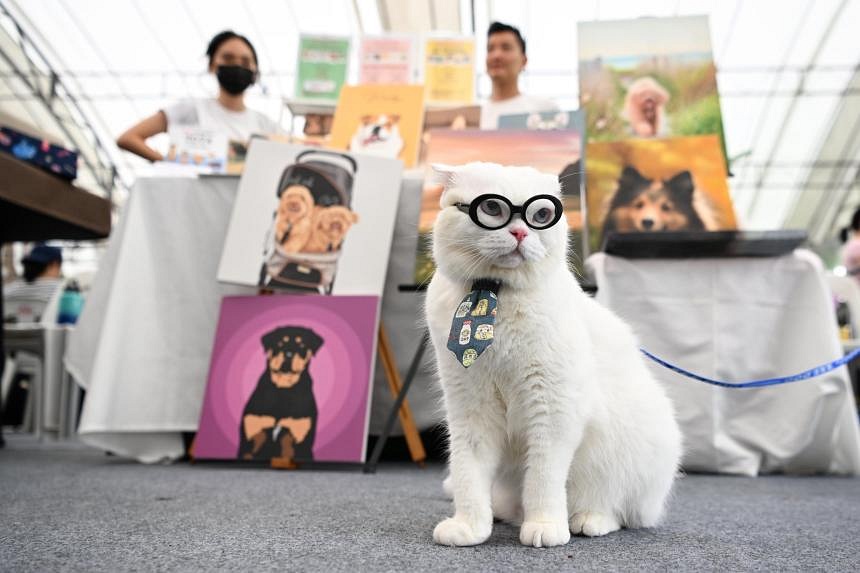HDB residents could soon own up to 2 cats per flat from late 2024

Source: The Straits Times
SINGAPORE - People living in Housing Board flats will soon be allowed to keep cats, with a proposal by the Government to lift a ban of more than 30 years on cat ownership in public flats in the works.
Two cats will be allowed for each HDB flat, and three cats per private premise, under a new proposed framework on cat management announced by Senior Minister of State for National Development Tan Kiat How on Dec 2.
Pet cats will also need to be microchipped and licensed, among a slew of measures proposed to improve the management and welfare of pet and community cats.
The proposed changes will be available for further input for two months before they are implemented in the later part of 2024, he said at the annual Pets' Day Out event held at Bishan-Ang Mo Kio Park.
A transition period of two years will be given to allow cat owners time to meet licensing conditions. During this period, cat owners can get their licences for free.
When the changes take effect, it will be illegal not to license pet cats, and owners will be subject to penalties similar to regulations for dog owners. Dog owners can be fined up to $5,000 for not complying with licensing conditions.
The limit of two cats per household takes into consideration views of cat owners and non-cat owners, and aims to maintain a harmonious living environment for all, said Mr Tan.
HDB residents have not been permitted to own pet cats since 1989, and offenders may be fined up to $4,000 if found to have a pet cat in their flat under the Housing and Development (Animals) Rules. But actions are only typically taken against flat owners if there are complaints of their cats causing a nuisance.
The authorities recognise that some households may have more pet cats than the proposed limits today, said Mr Tan. As such, during the transition period, cat owners can apply to license and keep all of their existing pet cats.
However, this will be subject to approval by the Animal and Veterinary Service (AVS), a cluster of the National Parks Board, which may conduct checks, he added.
Pet cats will need to be microchipped for a licence. This will ensure they are traceable, and cat owners can be held to greater account, if their cats are found to be abandoned, neglected, or abused, said Mr Tan.
Cat owners will also need to ensure their cats are kept in a safe environment, taking precautions such as installing window grilles or mesh to prevent cats from roaming or falling from height.
Mr Tan said the Society for the Prevention of Cruelty to Animals receives at least five reports of cats falling from height every week, and most do not survive.
Other licensing conditions include requiring cat owners to ensure their cats are kept under control in public, such as by using a harness, and requiring first-time cat owners to complete an online course on responsible pet ownership before they can be issued a licence.
As part of the proposed framework, pet cats belonging to low-income households, such as those living in public rental housing, can also get free sterilisation and microchipping from 2024. This follows a successful pilot Pet Cat Sterilisation Day that AVS held in November, when more than 80 pet cats belonging to low-income households were sterilised and microchipped, said Mr Tan.
